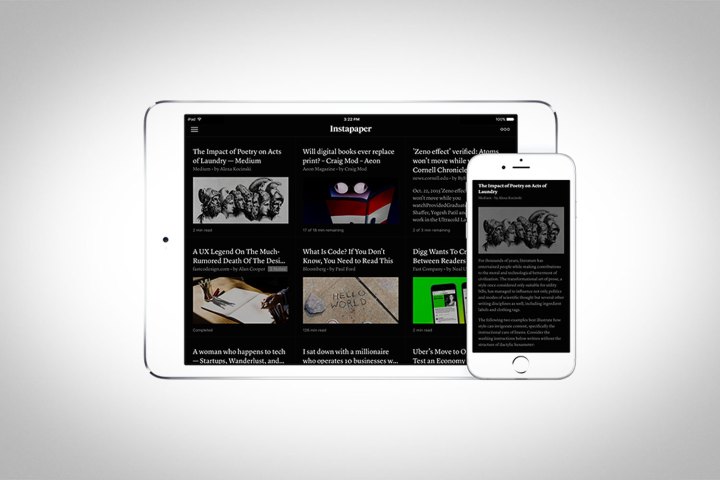
Founded in 2008, Instapaper allows for the saving of online articles to read later, and offers a clean interface free from the clutter and formatting found on web pages. Instapaper Premium previously cost $3 per month (or $30 per year).
Instapaper users can now benefit from full-text search functionality that applies to all saved, and archived articles. There’s also the ability to save unlimited notes and create text-to-speech playlists of saved articles. Additionally, users can now apply the speed reading function to an unlimited number of articles, “send to Kindle” via bookmarklet and mobile apps, and create Kindle digests of up to 50 articles. Instapaper is available for iOS and Android.
Pinterest claims all current Premium subscribers will receive a prorated refund in the coming months.
This is the second major change to Instapaper since its takeover by Pinterest just over two months ago. The first update came in September, when the app overhauled its search experience for iOS. The changes indicate that its parent company is committed to the app and, as promised, is allowing Instapaper to operate independently.
“The Pinterest team is working on unique technical challenges, and their collective skill will add tremendous value to Instapaper,” stated Instapaper CEO Brian Donohue in his announcement regarding the merger earlier this year.
The Instapaper team is currently working with its parent company to build indexing and recommendation technologies. Its services will no doubt come in handy for Pinterest, which boasts 75 billion pins, making discovery tools that suggest new items to users integral to its success. Pinterest recently hit a milestone of 150 million monthly active users, overtaking Twitter (at least in the United States) in the process.
Editors' Recommendations
- How much is Spotify Premium, and can you get it for free?
- Don’t waste your money on Audible — use this free app instead
- Amazon Music now has an app for Apple TV. Here’s how to use it
- AT&T subscribers can now get Spotify Premium for free — here’s how

